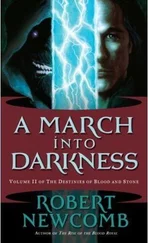Robert Pirsig - Lila. An Inquiry Into Morals
Здесь есть возможность читать онлайн «Robert Pirsig - Lila. An Inquiry Into Morals» весь текст электронной книги совершенно бесплатно (целиком полную версию без сокращений). В некоторых случаях можно слушать аудио, скачать через торрент в формате fb2 и присутствует краткое содержание. Жанр: Современная проза, на английском языке. Описание произведения, (предисловие) а так же отзывы посетителей доступны на портале библиотеки ЛибКат.
- Название:Lila. An Inquiry Into Morals
- Автор:
- Жанр:
- Год:неизвестен
- ISBN:нет данных
- Рейтинг книги:3 / 5. Голосов: 1
-
Избранное:Добавить в избранное
- Отзывы:
-
Ваша оценка:
- 60
- 1
- 2
- 3
- 4
- 5
Lila. An Inquiry Into Morals: краткое содержание, описание и аннотация
Предлагаем к чтению аннотацию, описание, краткое содержание или предисловие (зависит от того, что написал сам автор книги «Lila. An Inquiry Into Morals»). Если вы не нашли необходимую информацию о книге — напишите в комментариях, мы постараемся отыскать её.
Lila. An Inquiry Into Morals — читать онлайн бесплатно полную книгу (весь текст) целиком
Ниже представлен текст книги, разбитый по страницам. Система сохранения места последней прочитанной страницы, позволяет с удобством читать онлайн бесплатно книгу «Lila. An Inquiry Into Morals», без необходимости каждый раз заново искать на чём Вы остановились. Поставьте закладку, и сможете в любой момент перейти на страницу, на которой закончили чтение.
Интервал:
Закладка:
The idea that all men are created equal is a gift to the world from the American Indian. Europeans who settled here only transmitted it as a doctrine that they sometimes followed and sometimes did not. The real source was someone for whom social equality was no mere doctrine, who had equality built into his bones. To him it was inconceivable that the world could be any other way. For him there was no other way of life. That’s what Ten Bears was trying to tell them.
Phædrus thought the Indians haven’t yet lost this one. They haven’t yet won it either, he realized; the fight isn’t over. It’s still the central internal conflict in America today. It’s a fault line, a discontinuity that runs through the center of the American cultural personality. It’s dominated American history from the beginning and continues to be a source of both national strength and weakness today. And as Phædrus' studies got deeper and deeper he saw that it was to this conflict between European and Indian values, between freedom and order, that his study should be directed.
4
After Phædrus left Bozeman he saw Dusenberry just twice: once when Dusenberry came for a visit and had to rest because he felt strange ; a second time in Calgary, Alberta, after he had learned that the strangeness was brain cancer and he had only a few months to live. Then he was withdrawn and sad, preoccupied with internal preparations for his own end.
Some of his sadness was caused by the feeling he’d failed the Indians. He’d wanted to do so much for them. He spent so many years accepting their hospitality and now there was nothing he would ever do in return. Phædrus felt he’d failed Dusenberry’s plea to help analyze all his data, but Phædrus was involved in enormous problems of his own and there was nothing he could do about it, and now it was too late.
But six years later, after publication of a successful book, most of these problems had disappeared. When the question arose of what would be the subject of a second book there was no question about what it would be. Phædrus loaded his old Ford pickup truck with a camper and headed back into Montana again, to the eastern plains where the reservations were.
At this time there was no such thing as a Metaphysics of Quality and no plans for one. His book had covered the subject of Quality. Any further discussion would be like a lawyer who, after swinging the jury in his favor, keeps on talking and talking until he finally swings them back the other way again. Phædrus just wanted to talk about Indians now. There was plenty to say.
On the reservations he talked to Indians he had met when he was with Dusenberry, hoping to pick up the threads Dusenberry had left. When he told them he was Dusenberry’s friend they would always say, Oh yes, Dusenberry — he was a good man. They would talk for a while, but before long the conversation would become difficult and die down.
He couldn’t think of anything to say. Or when he did, he would say it so awkwardly and self-consciously that it disturbed the flow of the conversation. He didn’t have the knack for casual conversation that Dusenberry had. He wasn’t the person for the job. Dusenberry could sit there all weekend and gab on and on with them about their families and their friends and anything they thought was important, and he just loved that. That’s what he was really in anthropology for. That was his idea of a wonderful weekend. But Phædrus had never learned how to make small-talk like that and as soon as he got into it his mind always drifted off into his own private world of abstractions and the conversation died.
He thought that maybe if he did some reading in the field of anthropology he might know better what to ask the Indians. So he said goodbye for a while and drove from the hot plains up into the Rocky Mountains near Bozeman. At the college there, now a university, he took out the best books he could find on anthropology, then drove up to an old remote campground near the timberline and settled down to do some reading. He hoped to stay there until he had some kind of plan for a book sketched out.
It felt good to be back in the stunted pines and wild flowers and chilly nights and hot days again. He enjoyed the ritual of getting up in the morning in the freezing camper, turning on the heat, and then going for a jog up a mountain trail. When he came back for tea and breakfast the camper would be all warm and he could settle down to a morning of reading and note-taking.
It could have been a great way to do a book but unfortunately it didn’t turn out that way. What he read in the anthropology texts slowed him down more and more until it stopped him.
Phædrus saw with disbelief at first and then with growing anger that the whole field of anthropology was rigged and stacked in such a way that everything he had to say about Indians would be unacceptable. There was no question about it. Page after page kept making it clearer and clearer that there was no way he could continue. He could write a totally honest, true and valuable book on the subject, but if he dared call it anthropology it would be either ignored or attacked by the professionals and discarded.
He remembered Dusenberry’s hostility and bitterness toward what he called objective anthropology, but he always thought Dusenberry was just being iconoclastic. Not so.
The professionals' refutation of his book would go something like this:
A thesis of this sort is colorful and interesting but it cannot be considered useful to anthropology without empirical support. Anthropology tries to be a science of man, not a collection of gossip and intuitions about man. It is not anthropology when someone with no training or experience spends one night on a reservation in a teepee full of Indians taking a hallucinogenic drug. To pretend he has discovered something that hundreds of carefully trained methodical workers who have spent a lifetime in the field have missed, exhibits a certain overconfidence that the discipline of anthropology tries to restrain.
It should be mentioned that such theses are not at all unusual in anthropology. In fact, during the early history of anthropology, they dominated the field. It was not until the beginning of this century, when Franz Boas and his co-workers started to ask seriously, Which of this material is science and which is not? that speculative intuitive rubbish unsupported by any real facts was methodically weeded out of the field.
Every anthropologist at one time or another arrives at speculative theses about the cultures he studies. It is part of the fascination that keeps him interested in the field. But every anthropologist is trained to keep these theses to himself until he is sure, from a study of actual facts and proofs, that he knows what he is talking about.
Very formidable. First you say things our way and then we’ll listen to you. Phædrus had heard it before.
What it always means is that you have hit an invisible wall of prejudice. Nobody on the inside of that wall is ever going to listen to you; not because what you say isn’t true, but solely because you have been identified as outside that wall. Later, as his Metaphysics of Quality matured, he developed a name for the wall to give it a more structured, integrated meaning. He called it a cultural immune system. But all he saw now was that he wasn’t going to get anywhere with his talk about Indians until that wall had been breached. There was no way he was going to make any contribution to anthropology with his non-credentials and crazy ideas. The best he could do was mount a careful attack upon that wall.
In the camper he did less and less reading and more and more thinking about the problem. The books that surrounded him on the seat and floor and shelves were of no use to him. Many of the anthropologists seemed to be bright, interested, humane people but they were all operating within the wall of the anthropological cultural immune system. He could see that some of the anthropologists were struggling to get outside that wall, but within the wall there were no intellectual tools that would let them out.
Читать дальшеИнтервал:
Закладка:
Похожие книги на «Lila. An Inquiry Into Morals»
Представляем Вашему вниманию похожие книги на «Lila. An Inquiry Into Morals» списком для выбора. Мы отобрали схожую по названию и смыслу литературу в надежде предоставить читателям больше вариантов отыскать новые, интересные, ещё непрочитанные произведения.
Обсуждение, отзывы о книге «Lila. An Inquiry Into Morals» и просто собственные мнения читателей. Оставьте ваши комментарии, напишите, что Вы думаете о произведении, его смысле или главных героях. Укажите что конкретно понравилось, а что нет, и почему Вы так считаете.











